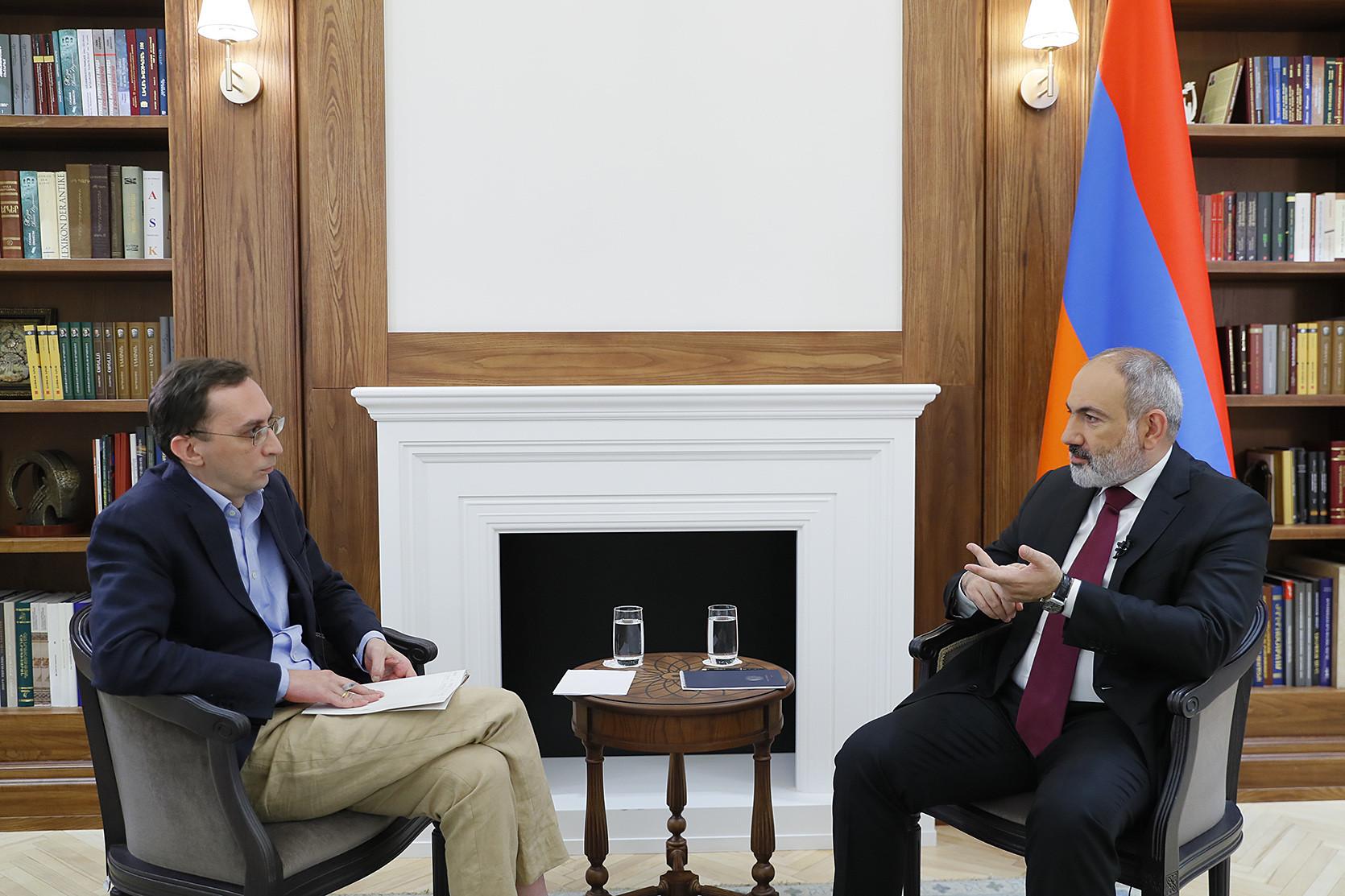
Pashinyan to Agence France-Presse: Azerbaijan’s Aggressive Actions Impede Peace Talks
Armenian PM Nikol Pashinyan, in an interview with Agence France-Presse, said that while he supports direct talks between Artsakh and Azerbaijan, they should take place in the context of an international mechanism, where the international community will be the witness.
Pashinyan’s office issued the following transcript of the interview.
Agence France-Presse – Mr. Prime Minister, do you believe in lasting peace with Azerbaijan?
Pashinyan – If I didn’t believe, there would be no point in taking part in the negotiations at all, but believing does not mean that the result is guaranteed, because, understandably, it depends not only on me, naturally, it depends also on the positions of the President of Azerbaijan, let alone that we are not generally negotiating in a vacuum. There is an international situation, there is a geopolitical situation, there is a humanitarian situation, there are various human factors, which may emerge at any point and time. Everything influences the process, but of course, the greatest impact on the process have the direct negotiators, I mean, the President of Azerbaijan and myself.
Agence France-Presse - What can you personally do in negotiations with President Aliyev in order to guarantee the dignity of the Armenians living in Karabakh, what keys do you have to determine the outcome of negotiations?
Pashinyan – You know, generally the conditions are very important. If we just step aside from the substance of the negotiations, because for an impartial observer of what’s happening in the negotiations room, one might think that in principle, everything is fine, that there is really nothing extraordinary happening, but then, after that, we need to come back and observe the actions and statements that are being made. The most important thing, which in my opinion impedes the progress of the talks, is Azerbaijan’s continued aggressive rhetoric, hate speech towards Armenians and anything that is Armenian, hate actions, and of course, the policy of revenge in relation to Armenians of Nagorno Karabakh and obviously, the policy of ethnic cleansing.
Look at the situation that we now have in Nagorno Karabakh. We have a humanitarian crisis there. When we say humanitarian crisis, for many people it may seem like a political term or a headline for news, but let’s delve into its substance. It means, for instance, absence of essential goods, there is no vegetable oil in Nagorno Karabakh, no sugar, there are no hygiene supplies, there is no butter, there aren’t several types of foodstuffs. The people of Nagorno Karabakh are hardworking people of course, and in this agricultural season some products are produced, but because of the absence of fuel, the delivery of the goods to the potential consumers is almost impossible. In Karabakh, there is a certain stock of grain, but because of the absence of fuel, it cannot be delivered to the flour mills, if in any way it is possible to deliver it to the flour mills, then it cannot be delivered to the bread bakeries because of absence of fuel, and if somehow it reaches the bakeries, it is impossible to bake the bread at industrial volumes because of the absence of electricity and fuel, but if it is somehow possible to bake it, then it is impossible to deliver it to the shops, and if somehow it is possible to deliver to the shops, people have transport limitations for reaching the shop to buy the bread, and if somehow they reach the shop to buy the bread, they do not have the required financial means to purchase the bread because they are deprived of employment.
If all these layers, all these difficulties are placed upon one individual, all that burden becomes obvious and understandable. Under these circumstances, in the Republic of Armenia and also of course in Nagorno Karabakh, pessimism is growing day by day, which, however, does not change our policy in any way, because we are convinced that the method of resolving issues through negotiations has no alternative. And on the other hand, if issues are not resolved through negotiations, in the public these negotiations may be perceived as just waste of time, or creating the impression in the media that something is being done. These are all risks that can directly or indirectly affect the process.
See MORE
 Videos
Videos Photos
Photos




Write a comment